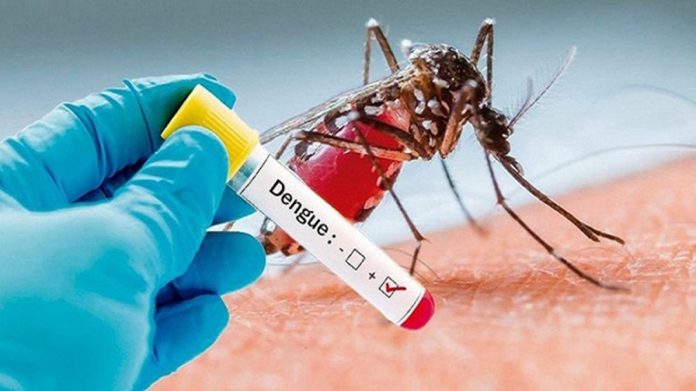The Ghana Health Service (GHS) office in Koforidua has confirmed approximately 103 suspected cases of the Dengue fever across the region whilst 57 more samples are being processed and 11 confirmed cases.
The cases, which are mainly centered in Achiase, Akyemansa, Birim Central, Birim South and Birim North districts, came to light after samples were sent to the Noguchi Memorial Institute for Medical Research (NMIMR).
Dengue fever is a viral hemorrhagic fever transmitted by mosquitoes with symptoms such as high fever, severe headache, pain behind the eyes, joint and muscle pain, rash and sometimes bleeding from mucosal surfaces.
Severe cases can escalate to dengue hemorrhagic fever or dengue shock syndrome, which can be fatal without timely medical intervention.
This came to light on Monday during a media briefing by the Eastern Regional Health Director, Dr. Winfred Ofosu to provide updates on the outbreak.
The Regional Health Directorate urged residents to stay calm since the situation was under control, adding that, “we understand the anxiety this outbreak may cause, but through collective effort and vigilant action, we can effectively control the spread of dengue fever and safeguard the health of our community.”
Outlining several measures in an effort to contain the outbreak, the Regional Health Directorate indicated that surveillance and rapid response activities including expanding testing capabilities and deploying mobile health units have intensified to affected areas to facilitate timely medical care.
According to him, a robust public awareness campaign is being launched to educate the community about the importance of mosquito control and personal protection such as community meetings, educational programs in schools, and widespread distribution of informational materials.
Dr. Winfred Ofosu mentioned that the Regional Health Directorate was working closely with local government authorities, healthcare providers, community leaders, and international health organizations to ensure a coordinated and effective response to this outbreak.
The Regional Health Directorate has, therefore, called on constituents in the region to eliminate standing water around homes as well as regular empty and clean water containers, cover water storage tanks, and ensure proper drainage around living areas, which are breeding grounds for mosquitoes.
The Regional Health Director further advised residents in the region to seek early diagnosis and treatment in preventing complications and use insect repellent and wear long-sleeved shirts and long pants, particularly during dawn and dusk when mosquito activity peaks.









